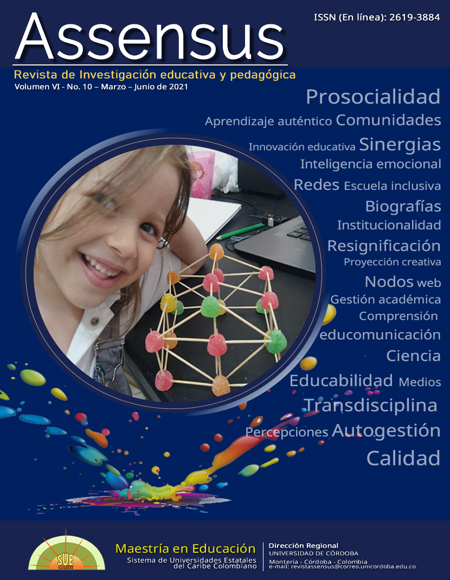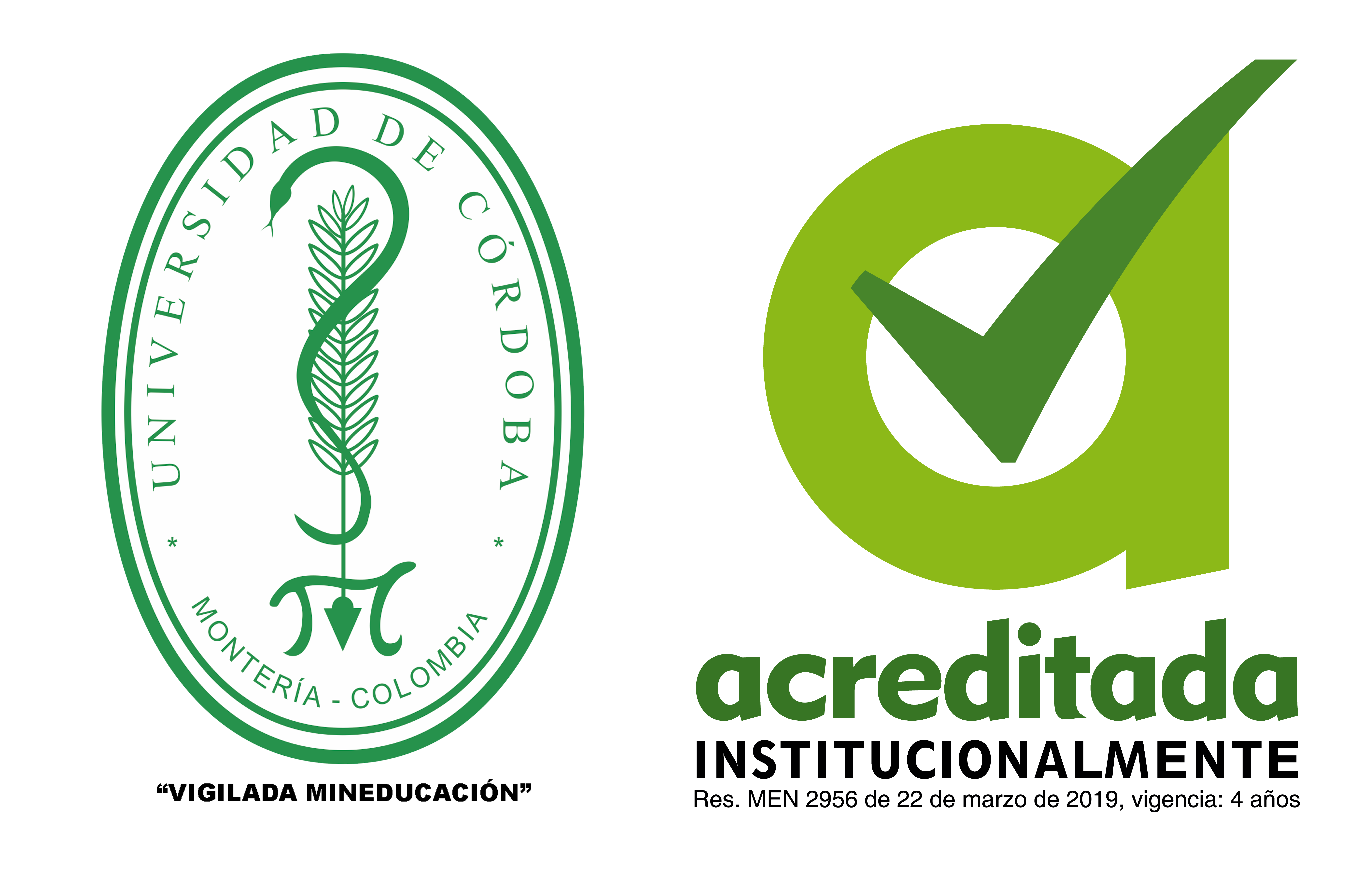Oratory as a pedagogical scenario for the development of critical thinking skills: a commitment to virtuality
La Oratoria como escenario pedagógico para el desarrollo de habilidades de pensamiento crítico: una apuesta en la virtualidad
The Assensus journal has a Creative Commons license. The citation, use and partial or total reproduction of the contents is authorized by citing sources. For more information, see https://creativecommons.org/licenses/by-sa/4.0/deed.en
Show authors biography
This communication presents partial results of a research whose objective is to understand the contribution of the practice of public speaking, from the area of Social Sciences, in the development of Critical Thinking skills in high school students. Theoretically, it is supported by contributions from Richard Paul and Linda Elder, Van Manen, among others. It is a qualitative approach study, with a hermeneutic phenomenological methodological design, supported by the techniques of participant observation, conversational interview and anecdotal records of the participants (eight students and three teachers of eleventh grade). The information was processed and analyzed using Larkin & Thompson's Interpretative Phenomenological Analisys, in correspondence with the hermeneutic approach proposed by Van Manen, and the transcription by Google voice dictation and the recording and organization of data in a field diary of the interactions on Facebook. Partial results of the transcription and interpretation of an anecdotal record of a Social Sciences teacher are shown, from which three themes or categories emerged that show how public speaking practices, through empathetic pedagogical relationships between teacher and student, contribute to forge a critical conscience, mediated by the free exercise of speech in school.
Article visits 1250 | PDF visits
Downloads
- Ayala, R. (2008). la metodología fenomenológico-hermenéutica de m. van manen en el campo de la investigación educativa. posibilidades y primeras experiencias. Revista de Investigación Educativa, 26 (2), 409-430.
- Dawes, L. (2021). On holding a conversation. https://oracycambridge.org/on-holding-a-conversation/
- Dignath G., Buettner, G. & Langfeldt, H-P. (2008) How can primary school students learn self-regulated learning strategies most effectively? A meta-analysis on self-regulation training programmes. Educational Research Review, 3, 101-129.
- ESU (2016) Speaking Frankly: the case for oracy in the curriculum. London, English-Speaking Union.
- Fuster, D. (2019). Investigación cualitativa: Método fenomenológico hermenéutico. Propósitos y Representaciones, 7(1), 201-229. doi:http://dx.doi.org/10.20511/pyr2019.v7n1.267
- Hattie, J. A., Biggs, J., & Purdie, N. (1996). Effects of learning skills interventions on student learning: a meta-analysis. Review of Educational Research, 66, 99–136.
- Howe, C. & Mercer, N. (2007) ‘Children’s Social Development, Peer Interaction and Classroom Learning’ (Primary Review Research Survey). Cambridge: University of Cambridge Faculty of Education
- Larkin, M. & Thompson, A. (2012). Interpretative phenomenological analysis. In A Thompson & D Harper (eds), Qualitative research methods in mental health and psychotherapy: a guide for students and practitioners. John Wiley & Sons, Oxford, 99-116.
- Littleton, K. y Mercer, N. (2013). Intepensar: Poner el habla a trabajar. Abingdon: Routledge.
- Madrid, J. (2018). Desarrollo del pensamiento crítico desde el área de Ciencias Sociales en la educación básica secundaria. Revista Praxis Pedagógica 18(22), 49-64. doi: 10.26620/uniminuto.praxis.18.22.2018.49-64
- Manion, J. (2020). (19 de Octubre de 2020). Oracy in The Learning Skills Curriculum: Rationale.
- Martínez, M. (2014). Ciencia y arte en la metodología cualitativa. (2ª ed.). México: Trilllas.
- Mayan, M. (2001). Una introducción a los métodos cualitativos: Módulo de entrenamiento para estudiantes y profesores. Alberta: Qual Institute Press.
- Mercer, N. (2016) Oracy and thinking skills. In Speaking Frankly: the case for oracy in the curriculum. London, English-Speaking Union.
- Mercer, N. (2016). Education and the social brain: linking language, thinking, teaching and learning. Éducation et didactique, 10(10–2), 9–23.
- Mercer, N. (2018) The development of Oracy skills in school-aged learners. Part of the Cambridge Papers in ELT series. [pdf] Cambridge: Cambridge University Press
- Mercer, N. (2019) El lenguaje y la creación conjunta de conocimiento. Routledge
- Ministerio de Educación Nacional. MEN. (2002). Serie lineamientos curriculares, Ciencias Sociales. Bogotá: Ministerio de Educación Nacional.
- - Ministerio de Educación Nacional de Colombia (2004). Estándares básicos de competencias en ciencias naturales y ciencias sociales: Formar en ciencias ¡el desafío! Guía 7. 28-45.
- -Muñoz, C., Andrade, M., Cisneros, M. (2011) Estrategias de interacción oral en el aula: una didáctica crítica del discurso educativo – 1ª. ed. — Bogotá: Editorial Magisterio.
- Norman, K. (1992). Thinking voices: The Work of the National Oracy Project. London: Hodder & Stoughton.
- Ortiz, A. (2009). Didáctica problematizadora y aprendizaje basado en problemas. Colombia: Ediciones Litoral.
- Paul, R. Y Elder, L. (2005): Estándares de competencias para el pensamiento crítico. Estándares, principios, desempeño, indicadores y resultados con una rúbrica maestra en el pensamiento crítico. Dillon Beach, Fundación para el pensamiento crítico.
- Paul, R. Y Elder, L. 2003). La mini-guía para el Pensamiento Crítico. Conceptos y herramientas. Fundación para el Pensamiento Crítico.
- Programme for International Estudent Assesment (2018). Informe de resultados 2018.
- Román, M. (2003). ¿Por qué los docentes no pueden desarrollar procesos de enseñanza y aprendizaje de calidad en contextos sociales vulnerables? Persona y Sociedad, 14(1), 113-128.
- Scott, P. (2008). Talking a way to understanding in science classrooms. Exploring Talk in School, 17–36.
- Tinto, J. El análisis de contenido como herramienta de utilidad para la realización de una investigación descriptiva. Un ejemplo de aplicación práctica utilizada para conocer las investigaciones realizadas sobre la imagen de marca de España y el efecto de origen. Provincia. 2013; (29): 135-173. [Fecha de Consulta 2 de Mayo de 2021]. ISSN: 1317-9535. Disponible en: https://www.redalyc.org/articulo.oa?id=55530465007
- Van Manen, M. (2016). Fenomenología de la práctica. Métodos de donación de sentido en la investigación y la escritura fenomenológica. Traducido por Aguirre, J.C. y Jaramillo, L.G. Popayán, Colombia: Editorial Universidad del Cauca.
- Van Manen, M. (2003). Investigación educativa y experiencia vivida. Ciencia humana para una pedagogía de la acción y de la sensibilidad. Barcelona: Idea Books.
- Van Oers, B., Elbers, E., Wardekker, W., & van der Veer, R. (Eds.). (2008). The transformation of learning: Advances in cultural-historical activity theory. Cambridge and New York: Cambridge University Press.
- Vélez, C. (2013). Una reflexión interdisciplinar sobre el pensamiento crítico. Revista Latinoamericana de Estudios Educativos (Colombia), 9(2),11-39.
- Vizcaya, F. (2003). La elocuencia deseada. Anales, 3(2), 117-130.
- Vygotsky, L. (1962) Thought and Language. Cambridge, MA: MIT Press.
- Vygotsky, L. (1978) Mind in society: The development of higher psychological processes. Cambridge, MA, Harvard University Press.
- Wells, G. (2009). The meaning makers: learning to talk and talking to learn. Multilingual Matters
- Whitebread, D., & Pino Pasternak, D. (2010). Metacognition, self-regulation and metaknowing. In K. Littleton, C. Wood, & J. Kleine Staarman (Eds.), Internat
- Whitebread, D., Mercer, N., Howe, C. and Tolmie, A. (eds.) (2013) Self-regulation and dialogue in primary classrooms. British Journal of Educational Psychology Monograph Series II: Psychological Aspects of Education - Current Trends: Number 10. Leicester: British Psychological Society.
- Wilkinson, A. (1965). Spoken English. Edgbaston, Birmingham: University of Birmingham.



